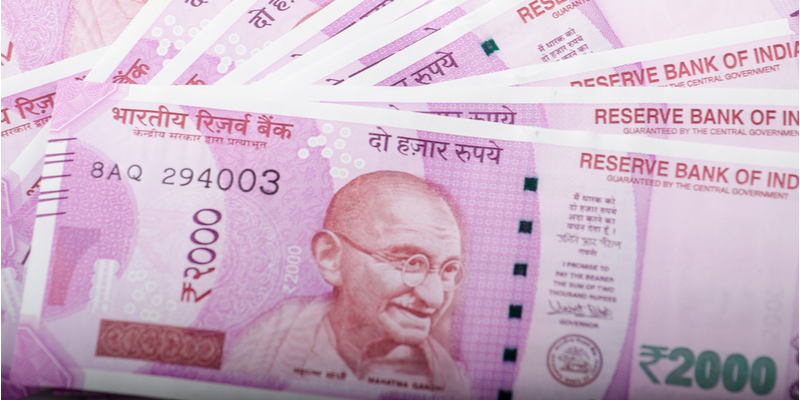Why sports startups lag behind e-com and foodtech for VC attention
When a bunch of sports fanatics graduated from the Indian Institute of Technology, Bombay, and took up jobs, they realized they could not easily organize sports activities the way they did in college.
“I felt a huge void in my lifestyle because I couldn’t find any grounds or clubs to play in, neither did I know enough sports enthusiasts around for me to organize stuff with,” said Nikhil Jha, Co-founder of SportsWave. He added that they realized there were a lot of other people thinking on similar lines.
This was how Vivek Kumar, Nikhil Rai and Nikhil Jha founded the online social website called sportswave.co.in in 2010. According to Vivek, the Delhi-based startup did both the things that hinder people from engaging in sports these days: meeting people who are interested in similar activities; and the ability to find and organize events and matches for the community.
As part of the project, they even built five sports centres that have served more than 10,000 enthusiasts in Gurgaon, and planned to build and open multiple such centres across various metros, before something changed his mind.
What is happening in the sector?
“Similar to Flipkart realizing that it was not profitable to stock up on inventory, we realized that we needed to scale aggressively to induce a sort of sports cult in India. Doing it two or three sports centres at a time was not going to help our cause,” said Vivek.
Though there are many startups, like SportsWave, coming up in the sports sector, each trying to capture a vertical in the space, experts believe that the biggest change will happen only when digitization of infrastructure resources happens.
It is not that India does not have any sports infrastructure. Even the new townships have fully equipped clubhouses or sport centres that can be used effectively, but no, there is something preventing them. Even national stadiums are unused,
adds Vivek, reiterating that the only scope for growth in the direction of sports will be digitization.
According to a recent report on the Indian sports sector by KPMG and CII, the global sports industry is estimated to be worth around USD 620 billion, while in India, sports is yet to be recognised as a sector and there is no comprehensive study on the industry’s estimated size in the country.
Professional squash champion Siddharth Suchde realized there was a gap in the Indian market for an online firm that focused solely on selling sporting goods and equipment. In 2011, he went on to launch an e-commerce company, Live Your Sport, which does just that.
“I think a lot of this idea stemmed from my background in sports, the response was great, so we continued,” said Siddharth.
According to experts in this field, times are changing now, and awareness about sports is spreading. They even say that there may be a direct link between this sector and the health and fitness sector, which may nurture the growth of sports startups in India.
Discovery and access to information regarding the activities and the available facilities nearby a given location is a major challenge. Any online platform that provides such information at your fingertips makes it a rather pleasant discovery and experience in itself. Such a platform will not only help in optimum utilization of idle resources but also provide users with options for price discovery,
said P S Sreekanth, Investment Director, Hyderabad Angels.

What are the driving forces of this sector?
Awareness that playing a sport can help in fitness
- Overall ecosystem push toward health and wellness
- More people become members of sports clubs or sports centres
- New residential projects give importance to sports infrastructure
- Corporate employers encourage sports for team building and fitness
What are the kinds of Indian startups in this sector?
Globally, the sports ecosystem comprises a range of associated businesses such as sports manufacturing, retail, e-commerce, tourism, sports medicine, venues & infrastructure, media & hospitality and merchandising.
The Indian ecosystem is seeing a lot of activity in the following categories.
- Event management: These companies organize sports events and activities and then gather people to participate in it. Eg: XtremeZone India
- Social engagement for amateur sportspersons: These are social platforms that help sports enthusiasts find each other and organize sports activities by themselves. Eg: SportsWave
- Professional training academies: These sports academies usually help those with professional ambitions. Eg: KOOH Sports
- Retail and e-commerce: Now that sport is becoming popular, these websites and stores help people purchase sports equipment effectively. Eg: Live Your Sport
- Content generation: These are startups that focus on providing different kinds of content (like statistics, videos etc) to sports fanatics. Eg: Matchup Cricket by Zootr Sports
What are the challenges in this sector?
- There is not much venture capital available because investors still need time to understand the market.
- Inculcating a new trend in the ecosystem is time consuming, because Indians are not basically inclined towards sports (of course with the exception of cricket).
- Most startups assume that the wave of sports startups will thrive, and build companies to serve secondary/peripheral requirements.
- The Government and Sports Ministry quite actively control the sector. This means their acceptance and encouragement is needed for any new project to go through.
What’s in store in the future?
More sports-related startups will tie up with the Government to encourage sporting activities across the country, while technology startups will build wearable products to enhance the experience. There are already a few companies venturing out in this space.
Bengaluru-based ReTiSense, which uses real time sensing to help predict sports injuries in enthusiasts, is doing quite well. “We are also going to enter sports wearables. We will have our own Indian Fitbit customized for sportspersons very soon,” said Vivek of SportsWave.
Though there are no special funds for sports startups in India, funding prospects seem to be better in the future with many more professional sportsmen keenly looking to invest in interesting ventures (read about how Yuvraj Singh started a new fund to help the ecosystem).
While there are relatively few or rather no entry barriers, the market is large enough to cater to more players in this space and the ones with a first mover advantage will lead the way. Funding could help these players build the content and technology platform thereby making it a more scalable and high growth business model,
added Sreekanth of Hyderabad Angels.











